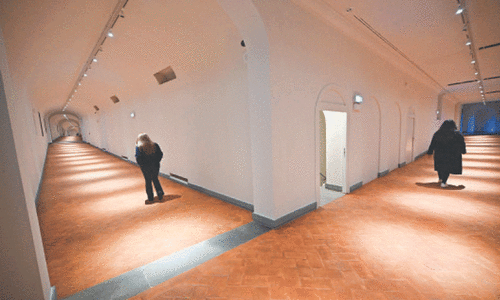
TO make a serious comparison between Confucianism and ancient Greek philosophy, one must look further back, to the many centuries — or even millennia — that preceded the rise of these influential schools of thought, according to Athina Kavoulaki, an associate professor at the University of Crete in Greece.
Kavoulaki, who specialises in Greek literature, was in Beijing for the first World Conference of Classics from Wednesday to Friday. “Both ancient Greece and China experienced great development in the Bronze Age, which helped lay the ground for the intellectual flourishing that took place between the 7th and the 4th centuries BC,” she says.
Judging by archaeological discoveries, China’s Bronze Age began no later than the 20th century BC, during the late Xia (c. 21st century-16th century BC) and early Shang (c. 16th century-11th century BC) dynasties. The height of Greece’s Bronze Age is best represented by the Mycenaean Civilisation, which flourished between 16th century BC and 11th century BC. The two also had different cultural emphasis for their respective use of bronze. In China, although bronze weapons appeared during this period, the focus was undoubtedly on using bronze ware for rituals and ceremonies in state-sponsored events, while in Greece, bronze was primarily used for military and artistic applications, as in weaponry, armor and architecture.
Aristotle advocates a virtuous middle path which corresponds with the idea of balance and moderation central to Confucianism
Such a comparison may shed light on the cultural and political underpinnings of the two distinct philosophical traditions. “China during the Shang and Zhou (c. 11th century-256 BC) dynasties, known for their magnificent ritual bronzes, was composed of vassal states that all bowed to the reign of the Zhou ruler,” says Wu Fei, philosophy professor at Peking University. According to him, this political arrangement, underscored by a unified belief system, had a profound impact on the basic tenets of Confucianism, which prioritised social cohesion, viewing morality as grounded in the context of family and society.
“In Confucianism, one’s moral and ethical virtues are measured by how well one upholds society propriety and fulfills their roles within the family and society. With the state seen as an extension of the family, political engagement is often viewed as a natural outgrowth of one’s moral development, a chance to translate knowledge into actions that promote social harmony,” he says.
Political participation in achieving personal fulfillment was also advocated by ancient Greek philosophers, as Aristotle famously remarked in his work Politics that “man is by nature a political animal”. In Aristotle’s view, the polis, or Greek city-state, is the highest form of community, where people can fully realize their potential as rational and moral beings, partly through the performance of their civic duties.
Published in Dawn, November 11th, 2024














































Dear visitor, the comments section is undergoing an overhaul and will return soon.